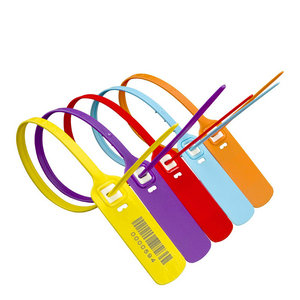Plastic seals play a crucial role in the logistics and transportation industry, and here are the top ten functions they serve:
Cargo Security Assurance:
Plastic seals effectively prevent theft or damage to goods during transportation, enhancing cargo security.
Anti-counterfeiting Function:
Seals often come with unique identification or codes, serving as a deterrent against theft and forgery. This helps ensure the authenticity and traceability of the goods.
Evidence of Sealing:
The breakage or absence of plastic seals can serve as evidence of whether the goods have been tampered with during transportation, aiding in dispute resolution
Packaging Integrity:
Seals are used to ensure the packaging integrity of goods, preventing damage during handling and loading/unloading processes.
Enhanced Transportation Efficiency:
The use of seals can streamline the loading and unloading processes, improving transportation efficiency and reducing delays caused by tampering.
Tracking and Management:
The identification on seals can be used for tracking the location and status of goods, facilitating visualized management of the logistics supply chain.
Prevention of Unauthorized Intrusion:
The unique design and structure of seals effectively prevent unauthorized intrusion, ensuring that goods are not tampered with during transportation.
Elevation of Goods Brand Image:
Using quality-assured seals can enhance the brand image of goods, increasing customer trust in the products.
Compliance with Regulatory Requirements:
In certain industries and regions, the use of seals may be a regulatory requirement, ensuring compliance with logistics transportation standards.
Environmental Considerations:
Seals made from recyclable or eco-friendly materials contribute to reducing environmental impact, aligning with the sustainable development trend in logistics.

